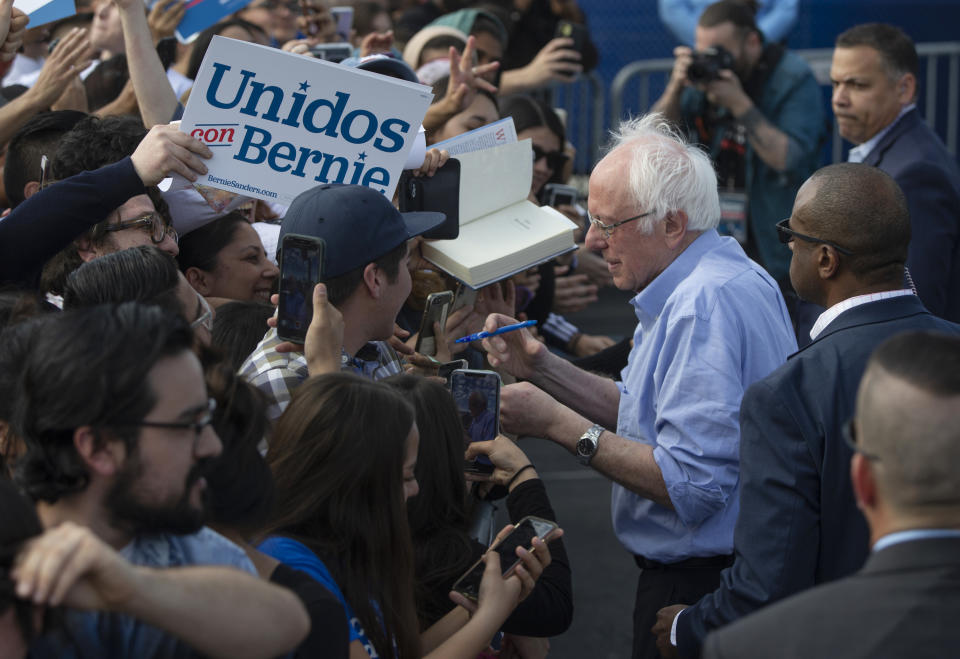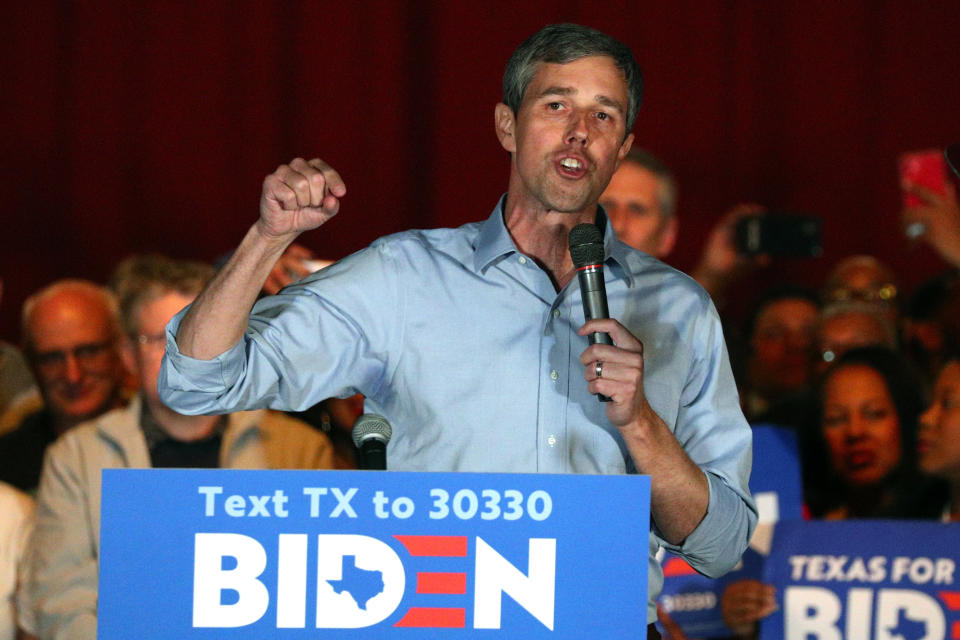Sanders's wins on Super Tuesday show power of Latino vote
As votes continue to be tallied in some Super Tuesday states, one of the key lessons from the Democratic primary contests in 14 states is the power of Latino voters — and importance of outreach for any candidate who hopes to be the nominee.
While former Vice President Joe Biden quickly collected wins in a majority of the Super Tuesday states, Bernie Sanders, the senator from Vermont, was able to claim victory in California, the biggest prize of the night with 415 delegates at stake, thanks in no small part to the support of Latino voters who make up approximately 28 percent of the electorate. As of Wednesday afternoon, exit polls showed Sanders leading among Hispanic voters in the Golden State by an enormous margin of 55 percent.

Although Biden was ultimately declared the winner in Texas, exit polls showed Sanders leading with 45 percent of Hispanic voters, who comprise 31 percent of the voting population.
“Thank you for believing in me when I said we could get #Latinos to vote for @BernieSanders in a big way!” Sanders senior adviser Chuck Rocha tweeted Wednesday morning. Rocha posted the message alongside a screenshot from the Washington Post’s breakdown of Texas exit polling by race, which showed Sanders in the lead among Latino voters.
Rocha has helped lead the campaign’s effort to attract Hispanic voters in early primary states, and the Vermont senator’s Super Tuesday successes came just 10 days after Latino voters propelled him to a victory in the Nevada caucuses. However, while polls have found many Latino voters are drawn to Sanders’s policy proposals on issues of particular concern, such as health care, support from this diverse demographic is hardly guaranteed as the Democratic primary field narrows to a two-man race between Biden and Sanders.

“I don’t think Latinos are opposed to Biden by any stretch,” said Matt Barreto, a professor of political science and Chicana and Chicano Studies at UCLA and co-founder of the research and polling firm Latino Decisions. Barreto noted that polling has found Latino voters view Biden favorably. “It’s just that Sanders has done more and is given more credit for outreach.”
Barreto said that the results of Super Tuesday offer proof to the Sanders campaign that “this investment has worked,” while “sending a signal to Biden” to step up his Latino voter outreach going forward.
“Both campaigns should be taking note” of the investment required to win Latino voters ahead of the March 17 primaries in Arizona, Florida and Illinois — three more delegate-rich states with substantial Hispanic populations.
According to the Pew Research Center, a record 32 million Latinos will be eligible to vote in 2020, surpassing African-Americans as the largest group of eligible minority voters in the United States. According to a Pew survey published in January, 68 percent of registered Hispanic voters disapprove of Trump’s performance as president.

Data from the Democratic primary races so far suggest more Latino voters than ever intend to make their voices heard at the polls in 2020. For example, the UCLA Latino Policy and Politics Initiative found that in Virginia precincts with the largest number of eligible voters, the number of ballots cast on Tuesday increased by 57 percent over the 2016 Democratic primary. Barreto said this rise in voter turnout is consistent with trends seen in Latino-heavy precincts in other states such as North Carolina, Texas and Nevada.
“There’s not only more of us — our community is growing very quickly — but turnout is inching up. More Latino ballots are being cast in each election,” said Barreto, noting that’s a good thing for candidates who invest in outreach to those communities.
Leaders from grassroots organizations that have been spearheading much of the Latino voter outreach echoed this view.
“Last night we saw when candidates invested in our community they won,” read a statement issued Wednesday by Hector Sanchez Barba, executive director of Mi Familia Vota, a national nonprofit dedicated to engaging and educating Latino voters.
Barba stated that support from Latino voters gave “rising candidates the boost they needed to claim the most delegates overall on Super Tuesday.”
“As we look forward to delegate- and Latino-heavy states like Arizona and Florida, our voices will once again prove crucial in the Democratic primary,” he said.
In a statement to the media, Mario Carrillo, campaigns manager for America’s Voice, a group that advocates for immigration reform, said, “To win the presidency, every candidate will have to do the work, listen to Latinos, and commit to fighting for us.”
_____
Read more from Yahoo News:


